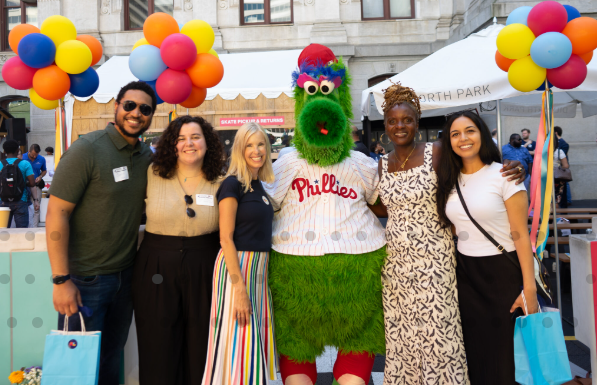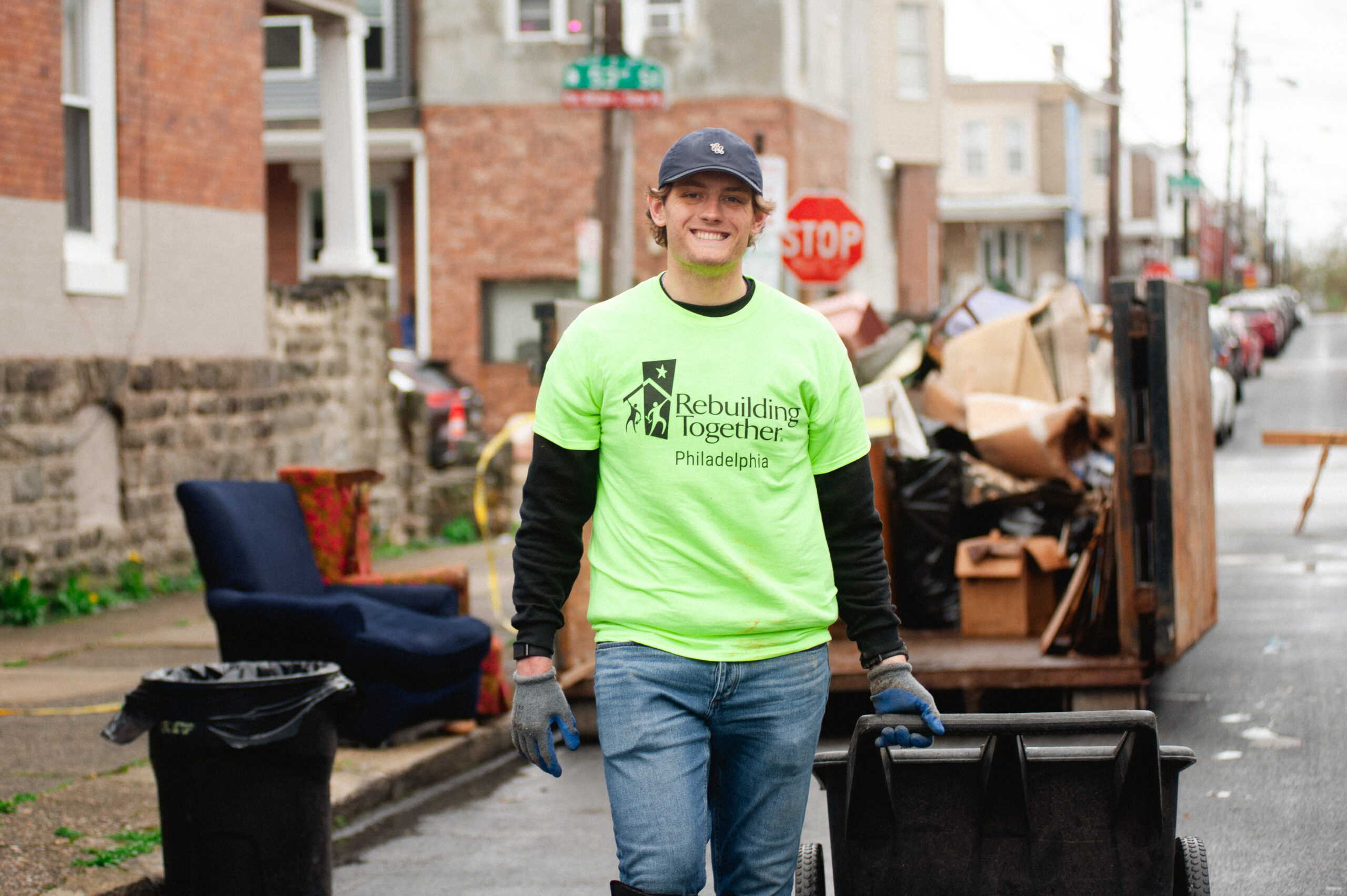Matching Graduate Students with Philadelphia’s Nonprofit Organizations
Students with prior or no prior nonprofit board experience are eligible to apply for the Golub Capital Board Fellowship.
The experience of Golub Capital Board Fellows is rooted in the program’s commitment to serving nonprofit organizations in the Philadelphia area, and upon selection board fellows enter into an experiential learning environment unlike any other at the University. The fellowship combines nonprofit service with personal development and membership in a community of like-minded peers.
We expect each fellow to uphold 3 equally important pillars of the program:
- Participate positively with their partner board and organization;
- Contribute actively to the wider board fellows community; and
- Engage purposefully in personal leadership development.
The ideal fellowship experience is one that creates mutual benefit for the nonprofit organization, the students, and the wider board fellows community.
GCBF local Philadelphia Community Volunteer Guide
This volunteer guide has been created for Wharton students by Board Fellows.
Staff Contacts
Garlen Capita
Associate Director, NBF Program
Ciara Clarkin
Program Coordinator, NBF Program
Role of Visiting Board Member
After being paired and matched with one of our nonprofit partner organizations, fellows take up the role of a nonvoting, visiting board member. Although “visiting” does not necessarily connote dynamic participation, we expect fully that fellows engage actively with their boards to reflect the experiential nature of the role. We intend for their experience to be defined by two equally important duties:
- Visiting Board Members should be continuously learning and developing over the duration of the fellowship;
- Visiting Board Members should be contributing positively to the work of the board, in a scope determined through mutual agreement with the board.
In contrast with your elected board members, visiting board members cannot engage in two expectations of full board membership. Namely, they may not:
- register a vote (i.e., as an elected member votes) on matters relating to the work of the organization, the board, and any board subcommittee; or
- be expected to make a financial commitment to an organization (i.e., participate in an annual give/get, or be included in board giving statistics).
However, visiting board members will be expected to attend all board meetings, should serve as an active member of a board subcommittee as applicable, and are expected to participate in all board discussions and initiatives as appropriate.
Board Fellow Commitment & Timeline
On average, the Board Fellows commitment is time intensive. During the first academic year (March-May) of participation, fellows are required to:
- attend a new class kickoff event
- attend and actively participate in a two-day training in March
- attend and actively participate in 4 evening trainings in March and April
- meet with the staff of their assigned host organization and with the outgoing fellows
- work with a dyad partner to create a deep dive of their host nonprofit organization
- meet with staff for a goal setting conversation
- attend the annual end-of-year partner GCBF Poster Showcase
During the second academic year (September-May), board fellows report dedicating an average range of 15-20 hours per month in these required activities:
- attending all full board and subcommittee meetings of matched board
- attending and actively participating in two-day training in September and evening trainings on various nonprofit topics
- attend GCBF Committee meetings to plan social events, volunteering activities, and alumni engagement
- meet with staff for check-ins
- attend the annual end-of-year Project Showcase
Training Topics
In support of their role as visiting board members, Board Fellows are offered a training program that spans their 14-month commitment. The training topics fall under three umbrellas:
- the nonprofit sector;
- nonprofit governance, and
- leadership development
In the past, specific topics have included:
- nonprofit sector overview
- basic roles and responsibilities of nonprofit boards
- ethical concepts in nonprofit governance
- scope and depth of philanthropy in the US
- grants and grantmaking
- nonprofit finance
- program measurement & evaluation
- effective communication
- team performance
- organizational assessment
- group dynamics
- strategic persuasion
Fellow-Board Matching & Pairing Process
The goal of the match is threefold: to match each board fellow with a board doing work they care about, to pair fellows up using self-reported data, and achieve a combination of matches that is optimal for the entire group. To achieve all three, we follow this process starting in March each year:
- Each fellow is given a copy of the matching pack, which includes information about the ~25 organizations that make up our partner pool, other supporting documents, and regulatory fit inventories. Fellows have time to look through the materials, and may request a meeting with staff to discuss interests and objectives.
- Fellows submit their inventories and a list of organizations in rank order.
- Staff run the data through an Excel optimization, which simultaneously matches and pairs each fellow within the optimal happiness of the group.
- Staff fine tunes matches using data collected through the fellowship interview process, resumes, conversations, and inventories.
- Staff separately informs the organization and board fellow pair of the match; then sends an email of introduction. The pair of fellows manage the relationship (with support as needed) from that point on.
- Check out the 2025-2026 Fellows and Pairings list.
Top 6 Board Fellow Attributes
Humble approach
Passion for mission
Comfort with ambiguity
Commitment to diversity
Personal resilience
Adaptability to change


















